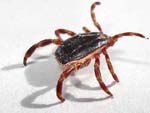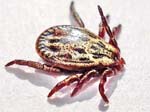Ixodes frontalis (Panzer) 1795
Ixodes pari (Leach) 1815
Passerine tick
Female, engorged, 8.64 mm
Removed from a Linnet, 19 January 2011, in a Derriford garden, Plymouth.
The tick is identified by the features below, following the
key in Paul D Hillyard's "Ticks of North West Europe"
Synopses of the British Fauna, Volume 52. Field Studies Council.
(c) The Natural History Museum, London, 1996.
Other bird ticks are:
Ixodes arboricola - treehole tick
I. caledonicus - northern bird tick
I. lividus - sand martin tick
I. rothschildi - puffin tick.
I. unicavatus - cormorant tick
I. uriae - seabird tick
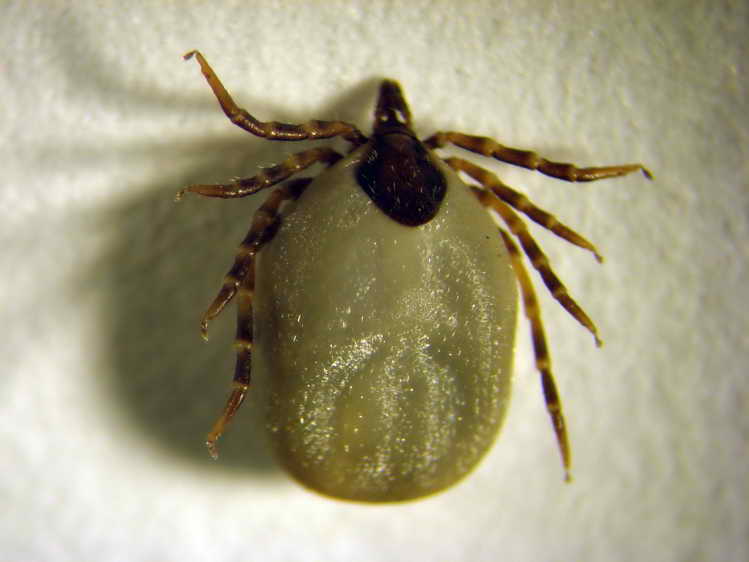
Dorsal view
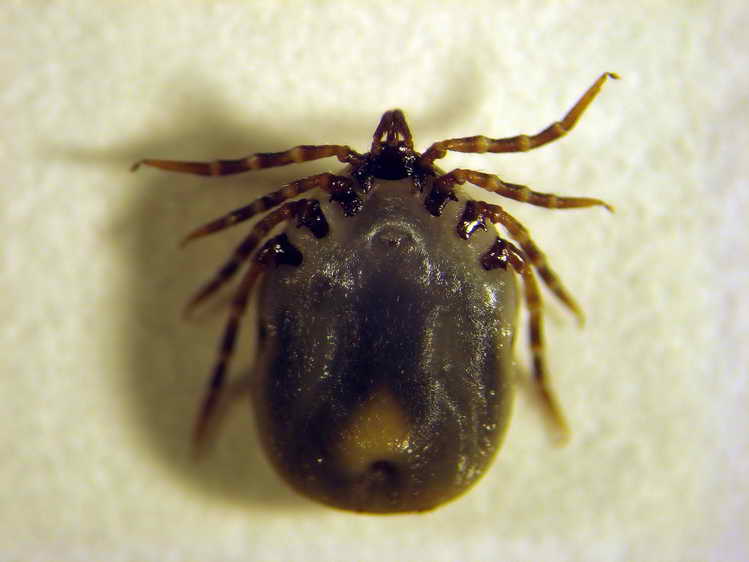
Ventral view
- the female genital pore is seen between the third pair of legs.
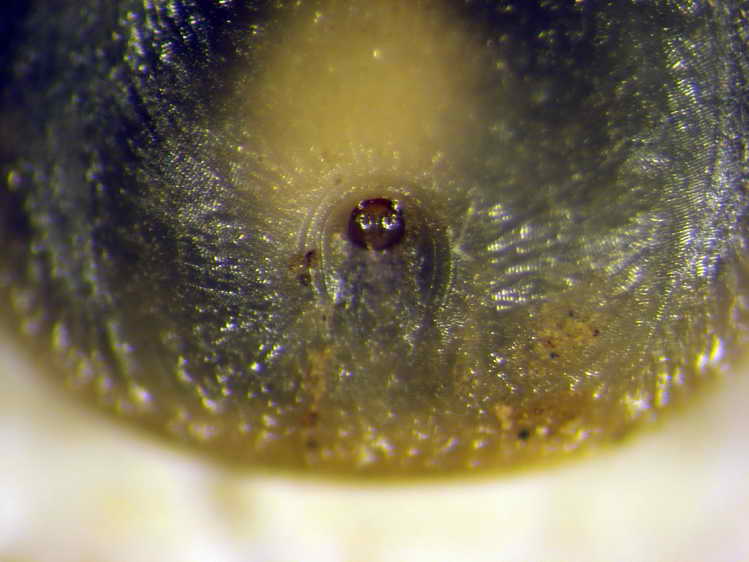
Anal groove
circles anus anteriorly, scutum has no eyes or ornamentation, festoons absent,
therefore Ixodes genus.
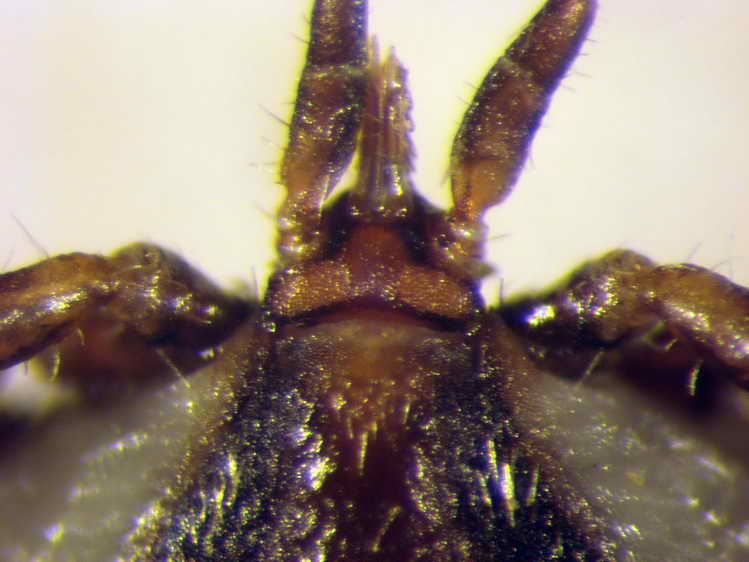
Dorsal view:
Two porose areas - the light coloured ovoid areas in the centre area of the
photograph,
between the scutum (dorsal shield at the bottom of the photograph) and the rest
of the basis capitulum ("head")
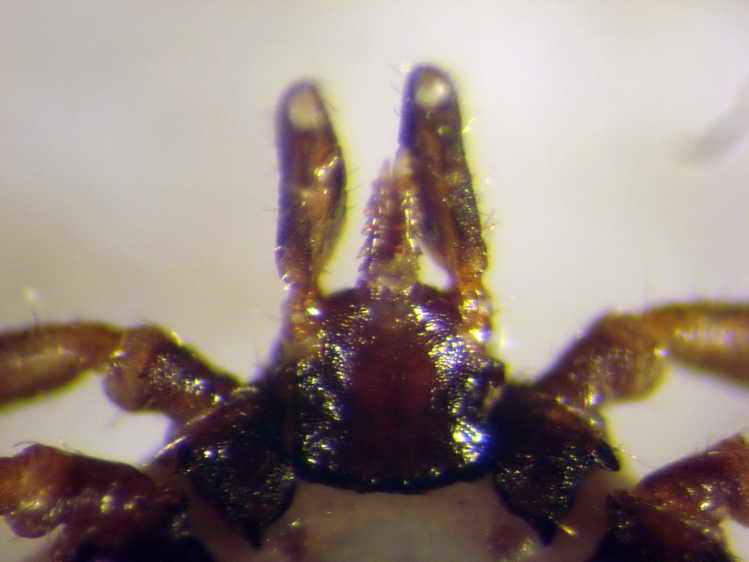
Ventral view:
Palps relatively long - as long as or longer than the width of the basis
capitulum.
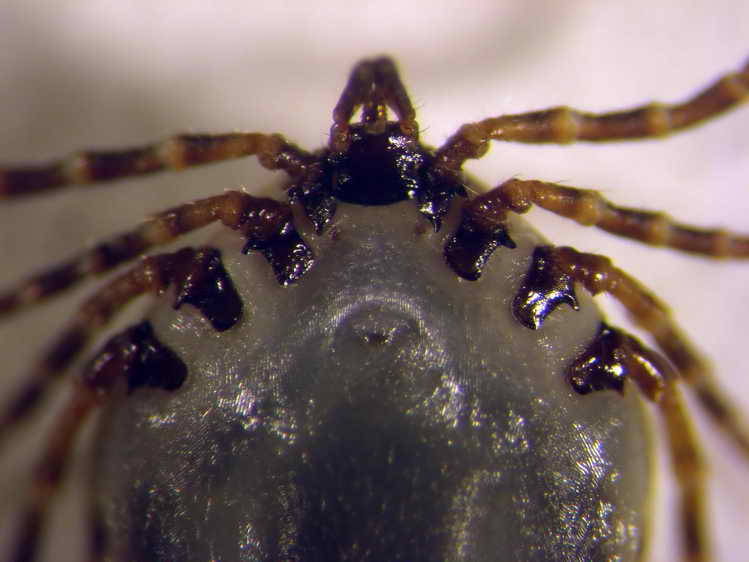
Ventral view:
Coxa I internal spur modest but pointed, external spurs modest and rounded.

Ventral view:
Auriculae are button-shaped. One auriculum is seen in the photograph, below the
base of the palp on the right side,
just clear of the anterior edge of coxa I. It is slightly reminiscent of the
external spur seen on coxa I.
All tick visitors counted by
StatCounter
